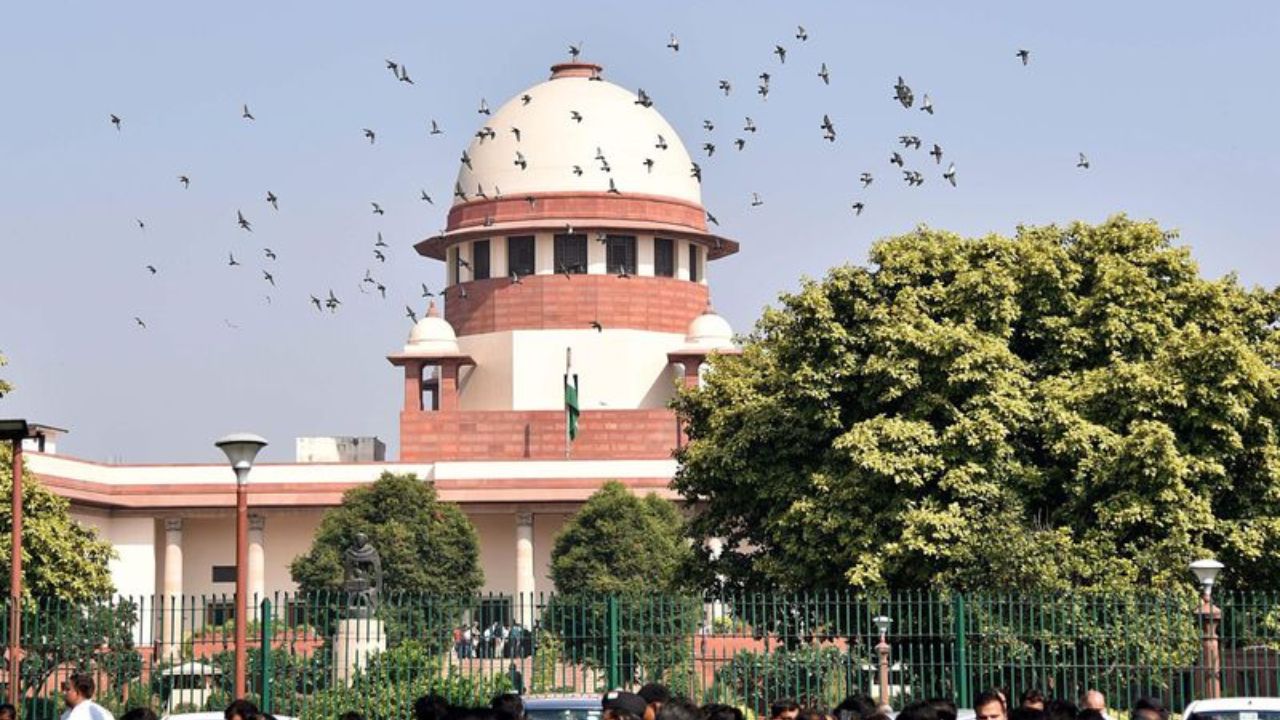 English
English

Sukhdev Pehalwan, convicted in the Nitish Katara murder case, will be released as per the Supreme Court’s orders. While delivering the judgment, the court observed that Sukhdev Pehalwan had already completed his 20-year sentence and cannot be kept in jail indefinitely, as his punishment had a fixed term of 20 years and was not a life imprisonment sentence. The Supreme Court also reprimanded the jail administration and the sentence review board for not releasing Sukhdev earlier, despite the court’s order, citing his conduct as an excuse.

Supreme Court of India (Image Source: Internet)
New Delhi: The Supreme Court has ordered the release of Sukhdev Pahalwan (Sukhdev Yadav), convicted of the Nitish Katara murder case. The court said that he had completed 20 years of his sentence and now there is no legal basis to keep him closed. A bench of Justice Biwi Nagaratna and Justice KV Vishwanathan clarified that Sukhdev had heard of a "fixed period" (20 years) of life imprisonment, not life imprisonment. In such cases, when the convict completes the scheduled time, he should be released automatically.
The court reprimanded the sentence review board and jail administration
The Supreme Court raised strong objections to the attitude of the sentence review board. In fact, on July 29, the court ordered the release of Sukhdev, but the board stopped the release by making an excuse for his "conduct." The bench said that this is a serious matter, and in such a situation it is a violation of the law to keep the convict unnecessarily in jail. The court expressed concern that if the situation remains the same, then many convicts will die in jail without reason.
Argument of the Delhi government and Sukhdev's lawyer
Additional Solicitor General Archana Pathak Dave had argued that "life imprisonment" means life imprisonment, so Sukhdev cannot be released automatically. But Sukhdev's lawyer, Siddharth Mridul, replied that the original order of the court clearly mentioned a 20-year sentence, which was completed on 9 March 2024. He said that there is no legitimate basis to stop release now.
The Supreme Court's decision and its importance
The court gave Sukhdev an interim relief of three months, saying that he could stay out of jail until the decision comes. Now in the final order, the bench directed the immediate release of Sukhdev. This decision is important because it gives the message to the jail administration and governments not to keep the culprits in jail without any reason.
This decision of the Supreme Court is an example of transparency and fairness in the judicial system. This makes it clear that if a convict has been punished for a fixed period, then he will have to be released on completion. At the same time, the court has also warned the jail administration not to disregard the law.
No related posts found.
No related posts found.